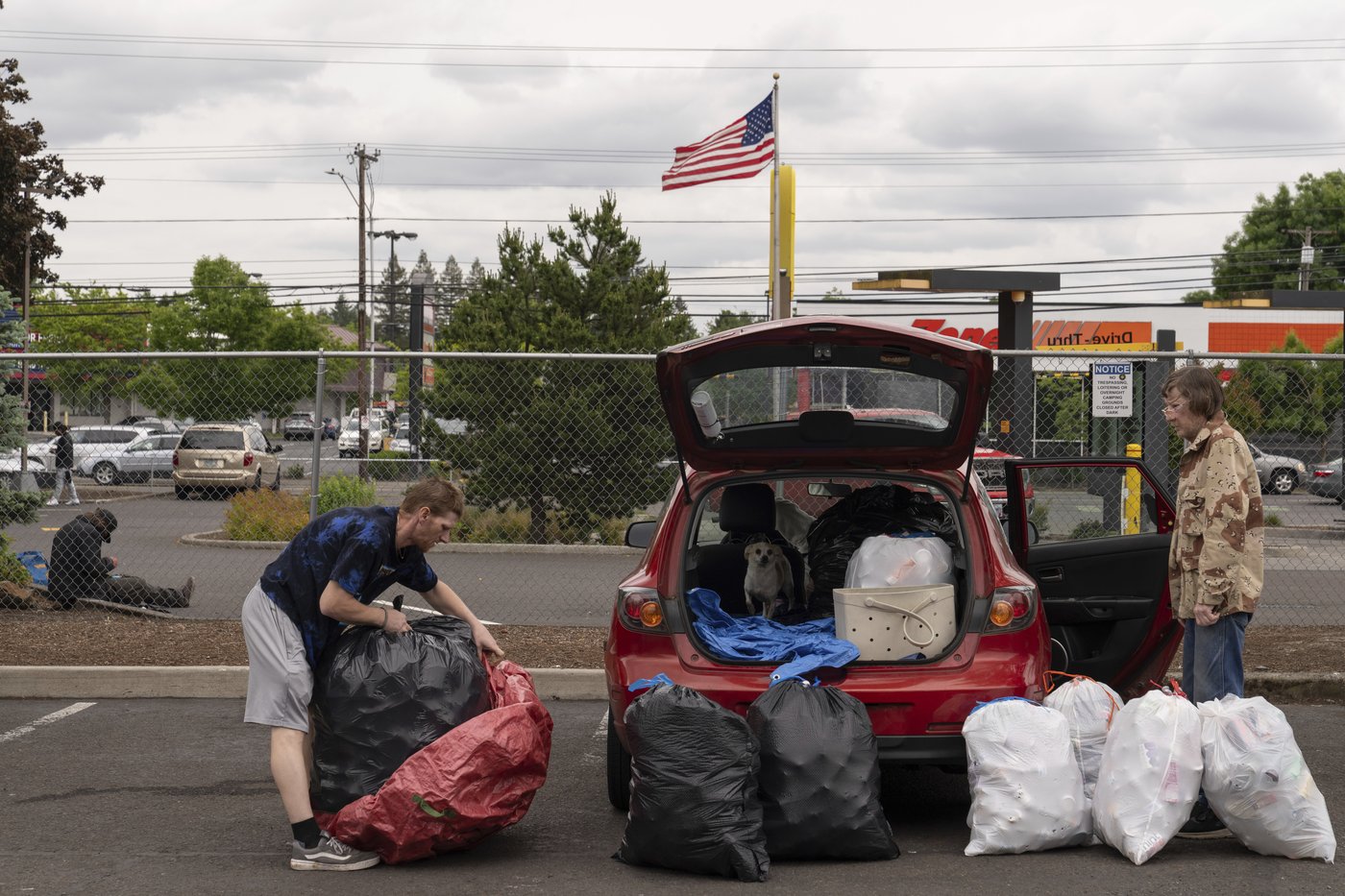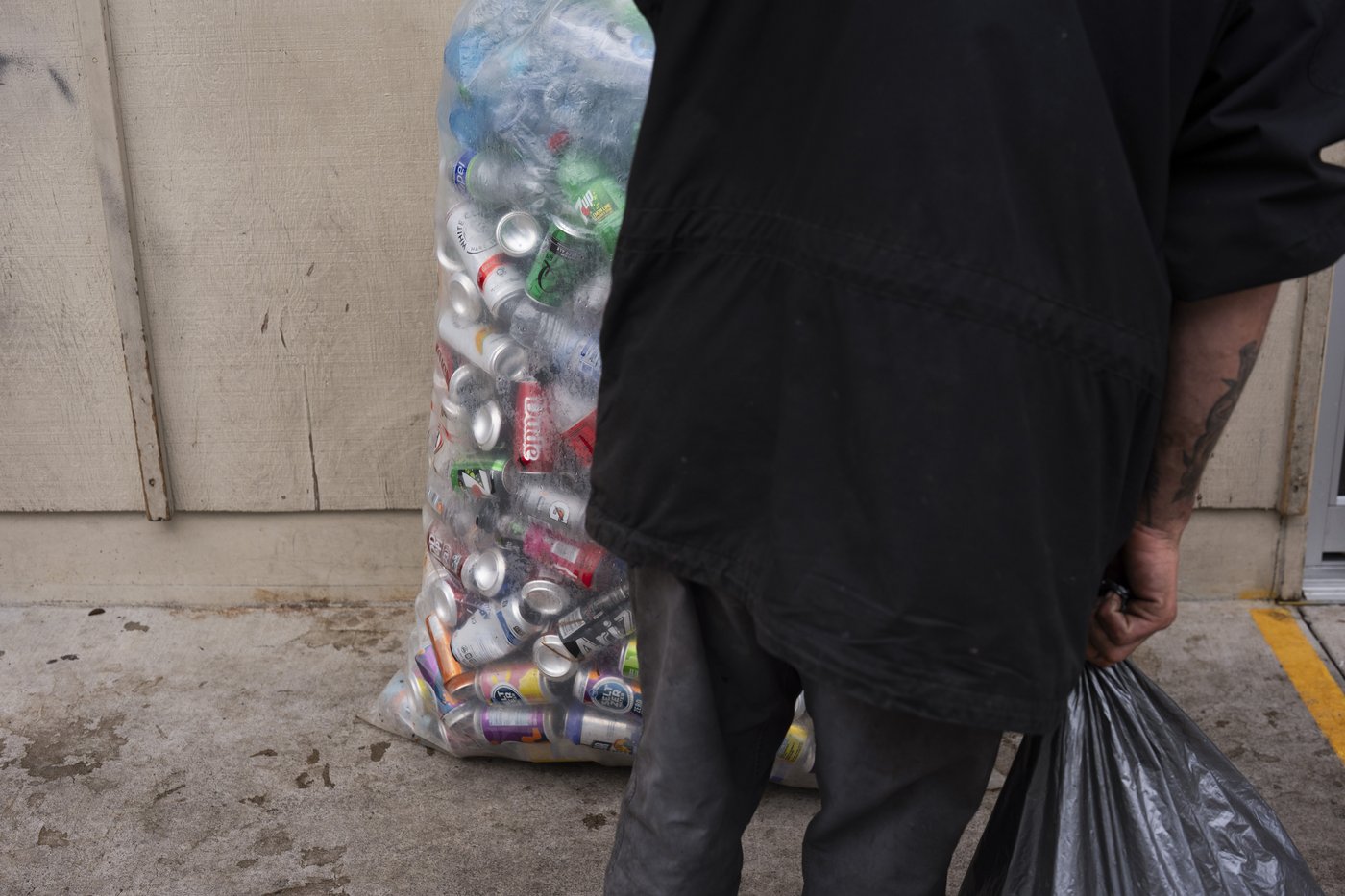Oregon Lawmakers Approve Bottle Redemption Changes as Homelessness and Drug Concerns Grow
On Wednesday, Oregon legislators endorsed amendments to the state’s pioneering bottle return legislation. The new adjustments permit redemption centers, which certain individuals claim have turned into hubs for drug use and homelessness issues, to deny accepting empty drink container deposits during late-night periods.
The pioneering legislation aimed at decreasing litter through incentives for recycling played a key role in establishing the state’s image as an innovator in this growing field.
environmental movement
It has similarly turned into a financial safety net for numerous individuals, such as those facing homelessness.
The legislation was drafted
In reaction to worries about the country’s initial “bottle bill,” enacted in 1971, needing revisions to tackle its interaction with the concurrent issues of dual fentanyl addiction and homelessness in Oregon.
This legislation addresses the worries raised by retailers, whether they’re big players or smaller entities, along with several of our constituents,” stated Democratic state Representative Mark Gamba, who presented the bill in the House, further noting that it aims to “establish equilibrium within our redemption framework while sustaining the program everyone wishes to safeguard.

The bill was approved by the state House with substantial cross-party backing, receiving 48 votes in favor and only 4 against. Earlier, it had been ratified by the state Senate with a vote of 28 to 1.
State Representative Pam Marsh, one of the four legislators to oppose the bill, had earlier expressed her dissent during a committee meeting held the previous week.
Marsh expressed her concern that the bill might hinder access to bottle and can recycling centers for individuals who rely on returning containers “to get quick money for essentials like dinner, paying rent, or covering fundamental living expenses.”

Consumers currently pay a
10-cent deposit
On qualifying beverage cans and bottles, customers receive a deposit refund. This amount is returned upon bringing these items back to stores or redemption facilities, where staff may manually tally the containers or use automated counters alongside designated disposal zones. Individuals have the option to create an account for direct deposit of their refunds or opt instead for immediate cash payouts during redemption.
Last year, the state’s bottle deposit program reportedly had more than a million account holders, as stated by the Oregon Beverage Recycling Cooperative, which manages the initiative on behalf of its distributor members.
Since its beginning, Oregon’s Bottle Bill has assisted in safeguarding Oregon’s oceans, beaches, roadside areas, and distinctive locations,” the cooperative stated in their 2024 annual report. They further noted that numerous residents utilized redemptions as a means to fund education or disability assistance and also to reduce grocery expenses.
In recent times, though, several inhabitants and shopkeepers, notably those in Portland, have grown disillusioned with redemption processes and the adverse effects these have had on their local areas and commercial activities.
At present, stores are required to accept container returns during their operating hours. Owners of around-the-clock convenience stores, notably those in Portland, have raised worries regarding staff safety. However, a legislation approved by legislators on Wednesday permits stores statewide to deny accepting container returns after 8 p.m.
In Portland, the proposed legislation would permit alternative redemption locations, which could include movable options like trucks serving various districts. These alternate points of return would be managed by nonprofits for individuals who bring back cans daily, thereby easing the burden on stores—especially those downtown.
In areas equipped with alternative drop sites, stores might restrict or deny acceptance of hand-counted ballots, and convenience stores particularly have permission to cease accepting them by 6 p.m.
The proposal received backing from retailers and organizations whose memberships consist of “canners” and waste collectors who gather containers as a means of earning money.
In 2023, approximately 87% of qualifying containers were returned for recycling as reported by the Oregon Liquor and Cannabis Commission. This marked the highest return rate across the country that year, according to data from the Oregon Beverage Recycling Cooperative.
Claire Rush, The Canadian Press